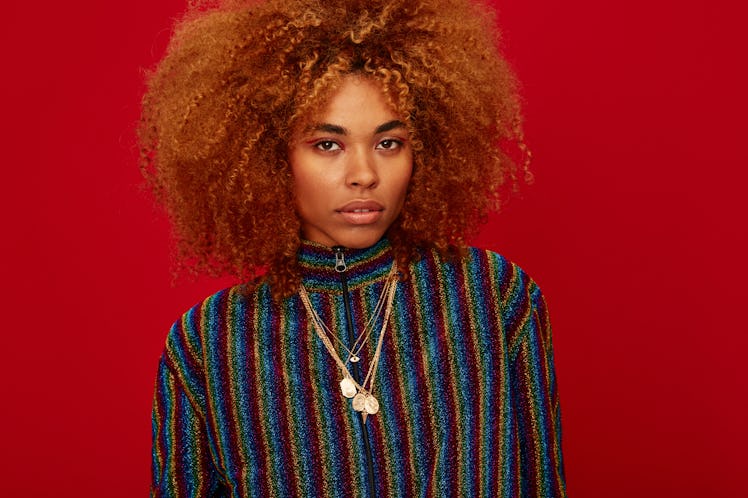
If You Have Trust Issues, This Is Probably Your Attachment Style
From always ordering the same coffee to having that one necklace you like to wear everyday — attachment is a natural part of human life. But when it comes to romantic relationships, it can be helpful to keep your attachment style in mind. If you're worried that you have trust issues, knowing what your attachment style is can be incredibly helpful in unpacking how you relate to your boo.
The *theory of attachment* was first speculated by John Bowlby, but really came to be after Mary Ainsworth (a powerhouse woman), took the reigns. After discovering that people handled attachment differently, Ainsworth devised a test to learn about different types of attachment so that people could better understand themselves. In 1970, she uncovered three attachment types: Secure, Anxious, and Resistant. And in 1990, the last fourth and last type was devised: Fearful Attachment, a sort of combination of anxious and avoidant.
Of course, attachment styles can and do change al the time, and there's no wrong or right way to experience attachment. But if it takes you a while to trust your date, if you're skeptical of love, or you struggle to really relax settle into relationships, you may be one of these two attachment styles.
01Resistant/Avoidant
If you feel discomfort when getting close to people or seem to always want to call it off when relationships start to get serious, your attachment style may be resistant, which is otherwise known as avoidant. If you've experienced infidelity, family tension, friend drama, or any other interpersonal hardships in your life — it may be difficult for you to open up emotionally to your romantic partners.
Struggling to open up or to settle into relationships can be a large facet of having issues with trusting a boo, and can be indicative of some resistant attachment tendencies. If you've been in painful relationships in the past or experienced some heavy duty heartache throughout your life, you may be drawn to relationships that don't really demand your total emotional investment or where you get to call the shots.
Of course, exhibiting resistant or avoidant attachment tendencies doesn't mean being unable to want or have happy and healthy relationships. It also doesn't mean you're destined to resist or avoid love. Dealing with attachment in a resistant way may just mean it takes a second to warm up to people or to truly suss out who you can trust. Building trust can take a while and there's nothing wrong with needing your sweet time to really open up.
If you're feeling like you'd like to unpack your attachment, it's OK to speak with friends, family, or even mental health professionals about embodying the happiest and healthiest you that you can be.
02Anxious/Insecure
If you get a little uneasy every time your partner talks about their new (hot) coworker or if you're quick to triple text your partner about where they are or who they're with, you're attachment style may be anxious or insecure.
If you've dealt with unreliable relationships in the past or if you've grown a little skeptical of love, it's natural that you may air on the side of caution or even over caution when navigating romance. If you need a lot of reassurance or you're quick to suspect your partner is being unfaithful, it may be a result of some of the pain you've experienced in your past. The desire to know where your boo is all the time or to be physically with them could be rooted in some icky ideas that you don't really deserve to be happy or that the people will love you won't stick around.
There's nothing wrong with needing verbal affirmations or clear communication from your partner. There's also nothing wrong with needing a little extra TLC in your current relationship, especially when healing from painful relationships in the past. But if you're feel a little anxious in your relationship, it's important to practice open communication by opening up about how you're feeling to your partner, trusted friends, family, or mental health professionals.
Everyone deals with insecurity, but if you're finding self-doubt creeping into your love life, it may be helpful to talk it out. You are strong, smart, and amazing, and you deserve to see yourself as such — and to have a totally happy (and totally hot) love life.
Of course, no matter what you've been through, attachment styles can change and evolve over time. Learning about yourself can be a wonderful tool in creating the healthiest and happiest life. You deserve the love life of your dreams, and unpacking your attachment style can be a big step in the right direction.